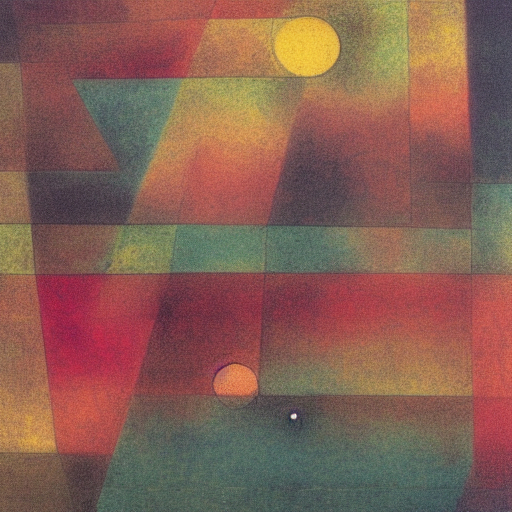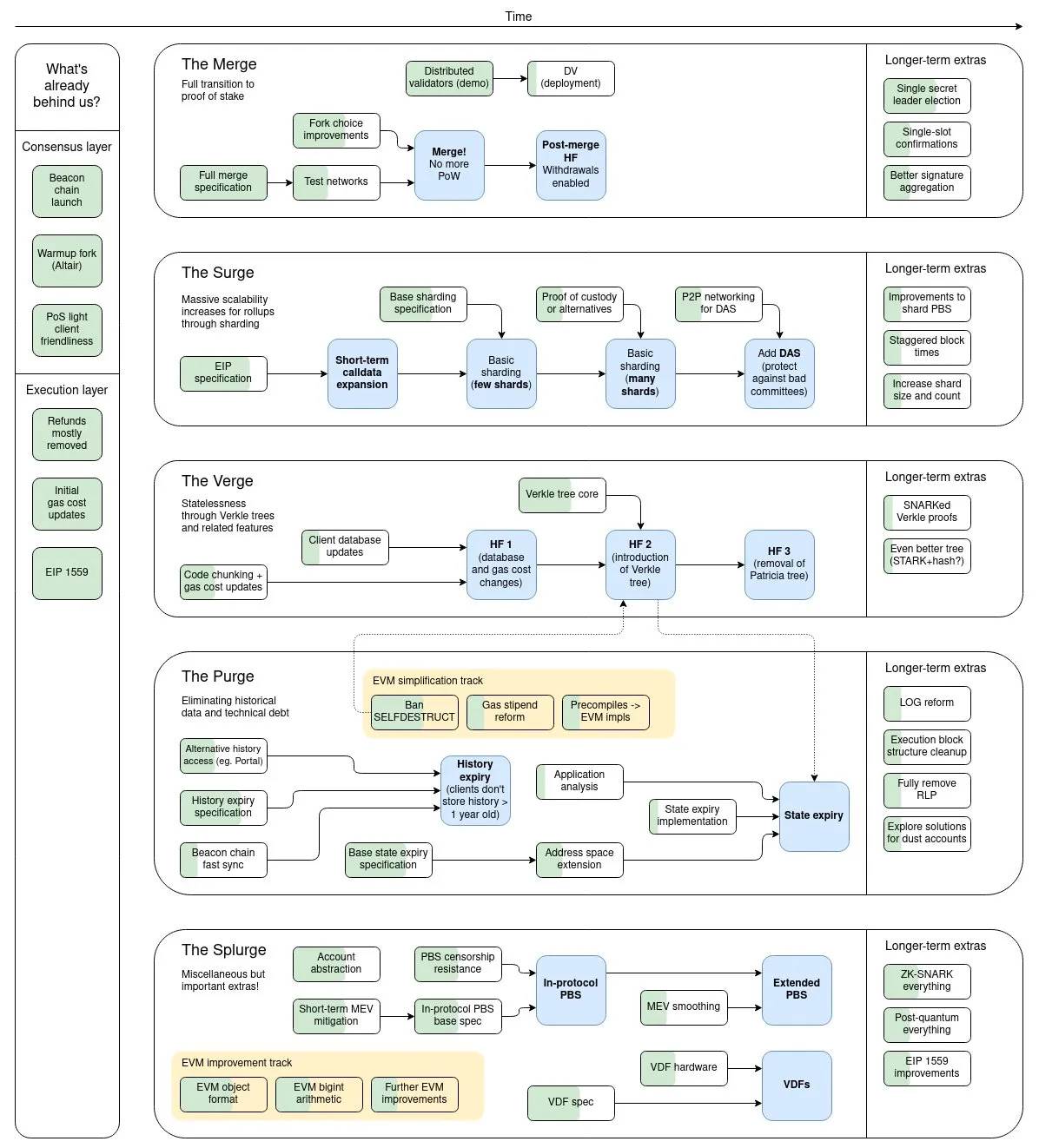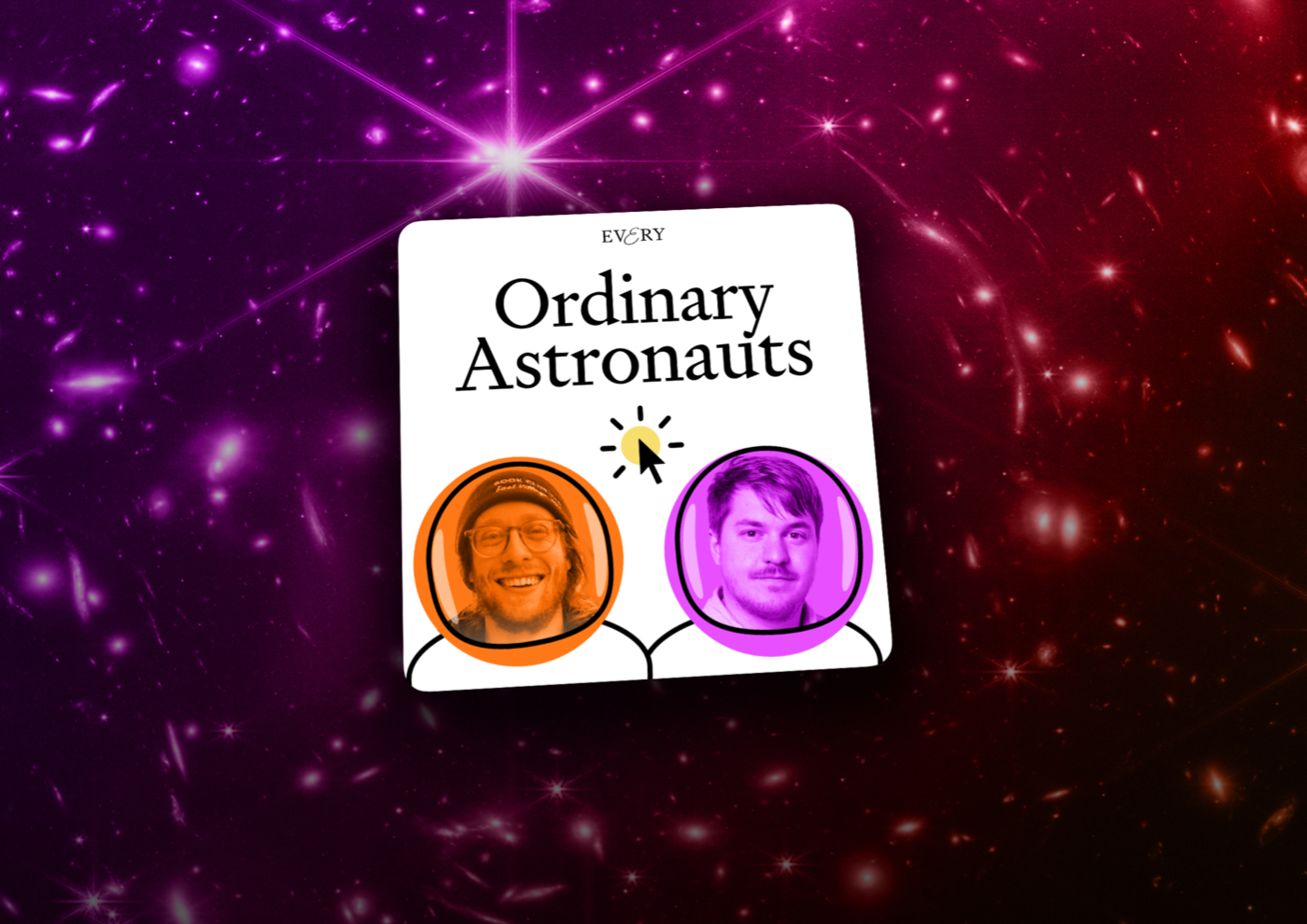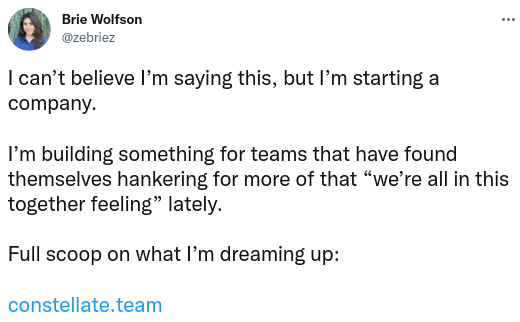
What is a Business, Creation at Zero, and More
Here’s everything we published this week.
September 17, 2022 · Updated January 16, 2026
Knowledge Partner: McKinsey & Company
Why it’s time for companies to reframe the tech talent search. Providing the kind of experience and skill building that augments human capital can open up a much broader pool of candidates. Reframing the notion of the “ideal candidate” may be a game changer. Check out a new article from McKinsey partners for insight on how to attract, retain, and develop tech talent.
Happy Sunday!
It’s been a busy week in the Every-verse! We’ve got words on decision-making, defining a business, the impact of AI on the business of creation, and a new playbook for the creator economy.
Plus, a podcast about the state of Apple, a friend of the Every family starts a business, and a student in Nathan’s business strategy course shares thoughts from the first week’s lessons.
Let’s dive in!
When Creation Goes to Zero
Evan Armstrong / Napkin MathAt its core, you can break the atomic activity of any business into three core components: create stuff, acquire customer to buy the stuff, distribute that stuff. The arrival of the internet disrupted the third link in that chain and drove the costs to zero. Now, AI is doing the same for the first.This week on Napkin Math, Evan is diving into the evolution of AI up to this point and asking: what are the downstream implications for the way business is done?
What’s Really Impacting Your Decision-Making?
Michael Ashcroft / Expanding AwarenessOne of the most consistently perplexing things about being a human is that our motivations are a mystery, even to ourselves. Our thoughts, feelings, and behaviors are constantly being influenced by factors outside our conscious awareness.
Michael Ashcroft believes that it’s possible to bring that fog into focus and gain greater insight into what’s driving our decisions. He breaks it down in this post, delving into five “domains of awareness”: awareness of physical senses, awareness of your own thoughts, awareness of doings and impulses, awareness of how you habitually relate to things, and awareness of other people’s awareness.
What Is a Business?
Nathan Baschez / DivinationsWe all have an intuitive sense of what a business is—it’s an entity that exchanges goods and services for money. Duh. But the most obvious answer to a question is seldom the most interesting.
This week on Divinations, Nathan is diving below the surface level to ask: what is a business, really? As he writes in the post, definitions determine destiny. The more clearly we can understand what a business is, the more effective we can be at understanding how it should work—and how it should work for us.
The New Creator Playbook
Li Jin / Means of CreationFor decades now, the creator playbook has looked more or less the same: creators spend months or even years working on their craft and slowly growing their audience, in the hopes of one day being able to monetize and turn their passion into a thriving business.
The arrival of web3 has taken that playbook and turned it on its head. Now, through the power of tokens, creators can monetize their idea and start building an audience upfront. It’s a transformation that will have huge implications for how creators create–and how audiences interact with creators’ work.
The Merge is Done! Now What?
Nat Eliason / AlmanackA few weeks back, Nat wrote a post about the Merge: the moment when the Ethereum blockchain officially made the transition from proof-of-work to proof-of-stake for validating transactions. Well, that moment has come, and now the question is: what happens next?
This week, Nat is looking forward, breaking the post-Merge future into four phases: the Surge, the Verge, the Purge, and the Splurge. For the most part, these focuses contribute to massively scaling what the blockchain can accomplish now that it’s energy efficient. And ultimately, Nat believes, it’s bringing us closer to what blockchain is for: building perpetual, decentralized applications that are widely available and inexpensive to use.
This week on Ordinary Astronauts: Figma! Wow
Three topics:
- Figma! It's not every day a company gets bought for $20 billion. Dan shares a story of how he actually met the Figma co-founder and CEO back in the day at an... interesting... retreat. And then we talk about why Figma succeeded, and why Adobe wanted them so bad they were willing to pay 10% of their market cap.
- How to find your next thing? Find the right people. We all go through transition periods in our career where we aren't sure what's next. Perhaps instead of focusing on finding the perfect idea, market, role, etc, it's better to focus on finding the right people and being flexible on what comes next.
- What is a business? This week on Divinations, Nathan wrote a philosophical-yet-practical essay exploring the nature of businesses. We get to the bottom of it and talk about how understanding the deep economic roots of commerce can actually help you refine your focus. Or maybe it's just interesting :)
A Business Insight for the Day: Adobe Buys Figma
At Every, we use Tegus to help us analyze the business landscape. It us access to 40,000+ searchable expert call transcripts across both private and public companies.
In what will be one of the most important acquisitions of this year, Adobe purchased Figma for $20B and another ~$2B in stock incentives. Figma is a design tool structured similar to Google Docs, with a multiplayer, browser based software. Adobe has a directly competitive product called Adobe XD.
One of the biggest differentiators for Figma was that it had always meant the product to be for more than designers. It was to be a gathering place on which engineers, executives, and everyone else adjacent to design could give input into the product process. After the call was announced, we took a look at Tegus to better understand why XD had lost. The product was designed explicitly to compete with Figma! Why couldn’t Adobe leverage their superior distribution to win the market?
Partially, the answer appears to be that Adobe never truly delivered the multiplayer experience. A truly generational productivity tool changes the method by which work is conducted, it doesn’t merely enhance it. XD appeared to be an enhancement, not one that encouraged an organizational shift.
From an interview with an Adobe employee:
Tegus: Okay. And so my questions are part survey, part, sort of, interview questions. And so I have a few of these survey-type questions next. And don't worry if you feel like you're repeating yourself in any of your answers, but I have a list of roles within a company and I'd love to understand whether or not that role is a user of Adobe XD. So the first one, it might seem obvious but designer?
Adobe Employee: Yes.
Tegus: Product manager?
Adobe Employee: It depends sometimes. If the product manager is a little bit hands-on on showing how to build the prototypes, which are rapid and fast, you can sort of use PowerPoint. We have seen some cases where project managers and product managers use XD to come up with a very rapid prototype showcase to the designers. We say, hey, this is the illusion flow work with it.
Tegus: Front-end engineer?
Adobe Employee: No. But in the front-end engineering space, they have had to take over assets from XD into their native frameworks. So I wouldn't say they have used XD, but they have an understanding about how it works because the designer has been working closely with them on handing over the asset from XD to any of their developer frameworks.
Tegus: Marketer?
Adobe Employee: No.
Tegus: And copywriter?
Adobe Employee: Nope.
Check out Tegus for more transcripts like these.
Huge congrats to friend of the Every family Brie Wolfson, who announced this week that she’s starting a company!
If you haven’t already, check out some of Brie’s writing on Every:
On the Shelf
A bookshelf can tell you a lot about a person. That's why we’re taking a look at the bookshelves of interesting thinkers in and around tech.
First up: David Perell:
A Few More Recommendations
Learn Market Analysis With Me | Startup Win
ICYMI, Nathan is currently teaching a five-week course on business strategy, teaching participants how to evaluate a market through the lens of strategy greats Michael Porter, Clay Christensen, and Hamilton Helmer. In this post, Jon Christensen unpacks the lessons of the first week, looking at Clay Christensen’s framework for identifying a business’s “Jobs to be Done.”
The AI Unbundling | Stratechery
When Ben Thompson writes about the content value chain, you pay attention. In a post that pairs well with this week’s Napkin Math, this essay from Stratechery lays out his understanding of how AI will shape the content value chain, and what happens when the last remaining bottleneck—creation—is removed.
Why Figma Wins | Kwokchain
In case you missed it, Adobe is acquiring Figma for a mind-boggling $20B. In this post from 2020, Kevin Kwok explores the secret to the design startup’s success through the lens of strategy and the idea of companies as a sequencing of loops.
A roundup of great essays and blogs | Packy McCormick
Packy McCormick put this question out to the Twitterverse: “What's your favorite essay/blog post of all time?” Check out folks’ answers here.
That's all for this week!
The Only Subscription
You Need to
Stay at the
Edge of AI
The essential toolkit for those shaping the future
"This might be the best value you
can get from an AI subscription."
- Jay S.
Join 100,000+ leaders, builders, and innovators

Email address
Already have an account? Sign in
What is included in a subscription?
Daily insights from AI pioneers + early access to powerful AI tools















Comments
Don't have an account? Sign up!